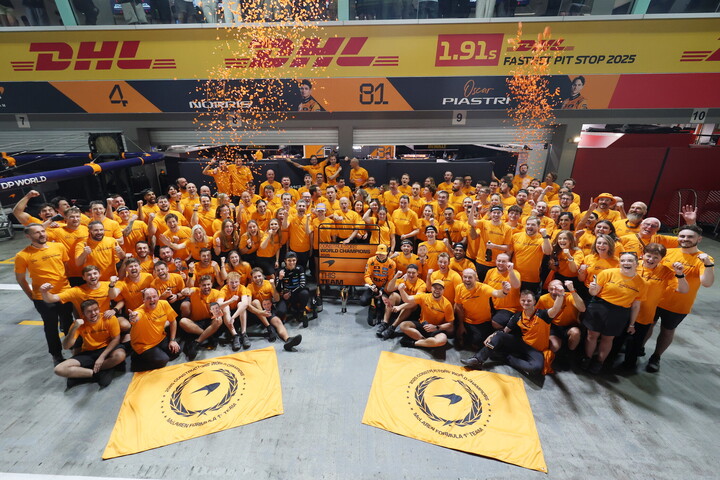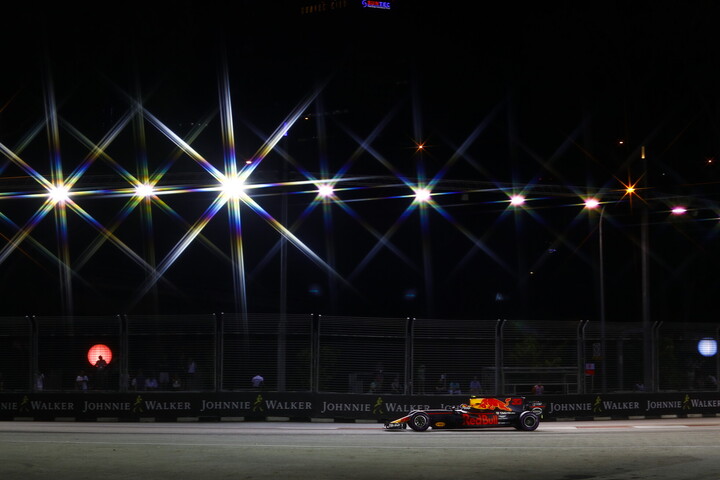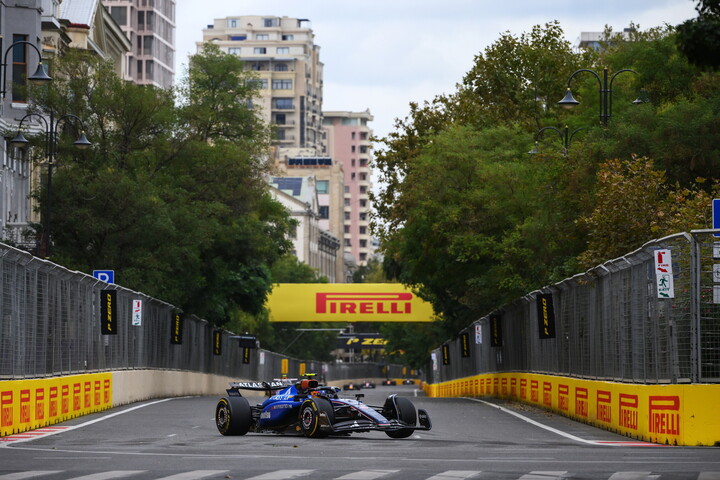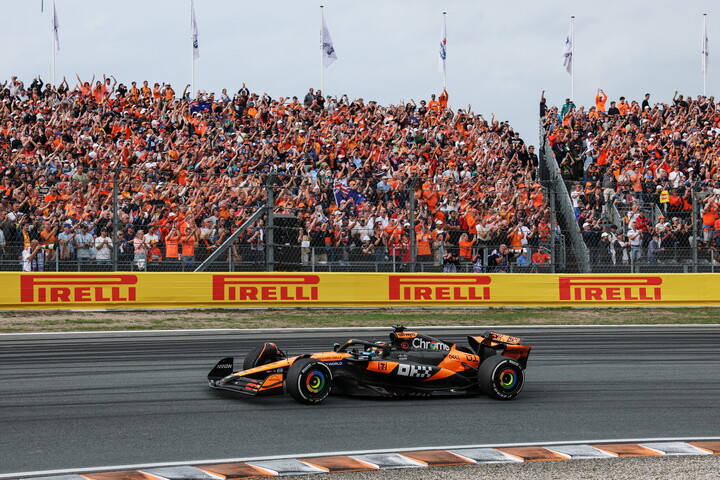On this week #27: Sebastian Vettel

Sebastian Vettel was born on 3 July 1987 at Heppenheim, Germany. With four Formula 1 world championship titles, 53 Grand Prix wins, 57 pole positions and 122 podium finishes, he is undoubtedly one of the greats of the sport's blue riband category. Vettel is still the youngest ever world champion, taking the crown in 2010 at the age of 23 years, four months and eleven days. However, Max Verstappen kicked him off the top spot for the youngest Grand Prix winner, the Dutchman following his footsteps within the Red Bull family, the team with which Sebastian secured most of his wins.
Sebastian can be said to have spent pretty much his whole life on four wheels ever since he was a very little kid. By the age of three and a half he was whizzing round on a kart in the backyard, much to the delight of his father Norbert, a carpenter by trade, who was keen on karting, keen enough to have his son racing by the age of seven. The little lad was clearly very talented and that immediately attracted the attention of the Red Bull talent scouts, who signed him up at the age of eleven. That was an important moment, as his family didn't have the means to support a racing career for long, especially as Sebastian is the third of four children, but the choice to focus on him certainly paid off.

Runaway success in the German Formula BMW ADAC championship in 2004 was the first real step on the road to Formula 1, as he was appointed test driver to the BMW-powered Williams team and then to Sauber, when it became the German car firm's official team, even if the headquarters remained in Switzerland. It was with the Hinwil squad that Sebastian first appeared at a Grand Prix weekend, driving in free practice in Istanbul in 2006, setting the fastest time and earning plaudits from his hero, Michael Schumacher. His actual race debut was not planned, as he was parachuted in to replace Robert Kubica at Indianapolis for the 2007 United States Grand Prix on 17 June, as the Pole was still recovering from his spectacular accident in Montreal one week earlier. He certainly caught people's attention: seventh on the grid and eighth at the flag, it meant the blonde 19 year old became the youngest points scorer ever and was the talk of the paddock. However, as BMW could not offer him a fulltime race seat, Red Bull's Helmut Marko grabbed the opportunity and gave him a drive with the junior Toro Rosso team. That was his lucky break and the start of a career that would take him to the very top.
Then came that incredible weekend at Monza in 2008, where it rained and then some. On Saturday, in the wet, Sebastian took pole position and on Sunday he led the race pretty much from lights out to chequered flag, apart from a few laps immediately after his pit stop. It was Scuderia Toro Rosso's maiden victory and it came before the senior Red Bull Racing team had managed to win one. That wasn't the only historic aspect of the victory as it was also the one and only time to date that a Ferrari engine has won a Grand Prix without being fitted to a car from Maranello.

Vettel finished eighth in the championship and he'd done enough for Red Bull to promote him to the senior team for 2009. He soon repaid them with the Milton Keynes squad's first win in Shanghai, again a wet race. There were three more wins that year and a second place in the Drivers' championship, but the hierarchy in the team had not yet been established. There was already some bad blood between Vettel and team-mate Mark Webber after the youngster collided with the Australian in the wet Japanese GP at Fuji in 2007 and now Webber did not take kindly to being beaten by the younger man. The 2010 season was epic: three teams and six drivers fought for the titles and by the last race, four men were still in the hunt, with Fernando Alonso ahead on points, followed by Webber, Sebastian and Lewis Hamilton. Red Bull meanwhile had taken the Constructors' crown one race earlier in Brazil. In Abu Dhabi, the German was inch perfect, taking pole and the win, while Ferrari shot itself in the foot with a strategic error that has gone down in history, so the Red Bull driver was champion.
Vettel's path to another title in 2011 was far easier as Red Bull had found the winning technical solution in the shape of the blown exhaust: eleven wins, a further six podium finishes and 15 pole positions. Job done.
However, the route to title number three in 2012 was far more fraught. Once again the stiffest opposition came from Fernando Alonso, the Spaniard regarding Vettel as his nemesis. Up until the summer break it looked like Fernando's consistency, matched by that of his Ferrari, might have the edge over Red Bull, which had suffered from a few too many reliability problems, but then it all changed and Vettel strung together a series of results that meant he arrived in Brazil for the final round with a 13 point advantage over his rival. There was a scare on the opening lap when he collided with Bruno Senna, but he was still able to finish sixth and while Fernando crossed the line second, Vettel brought the title home to Red Bull by a margin of three points. It seemed that years with even numbers were difficult, those with odd much easier for Sebastian and 2013 was pretty much a stroll in the park for him, with 13 wins, 15 pole positions and 16 podium finishes from 19 races. That fourth title was a formality.

Red Bull's invincible war machine was beginning to lose some of its firepower. Mark Webber left, unable to deal with a team-mate who was so single-minded in pursuit of victory that he even ignored clear team orders as was the case in the infamous 2013 Malaysian “Multi 21” radio message when Vettel was no longer supposed to attack Webber who was leading at the time. Clearly Sebastian wasn't as angelic as some people believed and cracks began to appear that deepened in successive seasons. One Australian was replaced with another as Daniel Ricciardo arrived and immediately made his mark in the same way that the fresh faced Vettel had done with Webber in 2009, beginning to take centre stage with the team. In 2014, the first year of the hybrid era, Ricciardo took three wins, the only non-Mercedes victories. The wind had changed and Red Bull was pragmatic, not to say realistic: the time had come for Vettel to explore pastures new. Where better than Ferrari, where Sebastian's childhood idol, Michael Schumacher was still much missed, especially after the turbulent end to the Montezemolo era and Alonso's dramatic departure. Could history repeat itself? Could a German multiple world champion come to Maranello and take the team back to the top? It was certainly a potential Oscar-winning script.
And yet, Vettel's seven years in red did not yield a fairytale ending. Yes there were wins, 14 of them – only Schumacher and Lauda won more for Maranello – and he was popular with the tifosi, but there was something missing to complete the circle. In 2017 and 2018, the Scuderia had everything needed to win the title, but it failed, partly because it lost the development war against the formidable Mercedes operation and also because Sebastian got beaten, partly mentally by his great rival Lewis Hamilton. There were a few unforgivable mistakes, such as the starts in Singapore in 2017 and Monza a year later, or errors in Baku in 2017 and Hockenheim in 2018, at key moments in the title race. They were blemishes that led to doubts within the team that he was not the new Schumacher, but just another driver who followed in his footsteps. All this at a time of upheaval for Ferrari following the sudden death of Sergio Marchionne. Those doubts grew stronger in 2019 when Charles Leclerc burst onto the scene in only his second year in Formula 1. Sebastian won one once that year in Singapore, but for him the year was almost a repeat of 2014, when Ricciardo had forced him out except that this time it was Leclerc. The relationship with Ferrari would last another year. Racing started late in 2020 because of the pandemic, with everyone living separate lives at home under lockdown. Back in Maranello the decision had already been taken, it was time to move on. Sebastian was told he was free to look elsewhere, as Ferrari planned to hook up with another Spaniard, Carlos Sainz. Vettel was not yet ready to hang up his helmet and allowed himself to be courted by Lawrence Stroll. After the blue at Red Bull, the red at Ferrari, now it was time for the green of Aston Martin. With the Silverstone-based team he made it to the podium just once in Baku in 2021 and then he decided the time had come to stop.

In Abu Dhabi, he was given a great send-off by his peers, who appreciated not only his skills at the wheel but also his humanity, which was never in doubt. He always stayed the straightforward lad from Heppenheim and in fact, Hanna his wife was his childhood sweetheart and he always was fiercely protective of their privacy, along with that of their children. That was perhaps his greatest victory, seeing the miracle of their birth and the unexpected passing of his father in law as reminders of life and death that everyone has to deal with. Since bidding farewell to the race track, Sebastian has made use of his image and visibility to promote causes bigger than and outside of the world of racing, working both on and off track on matters relating to environmental sustainability, diversion and inclusion.
But has he really retired from racing for good? There's even been talk of him replacing Hamilton at Mercedes next year, or that he tested a Porsche with a view to racing in WEC. It is highly improbable that he will ever return to the Formula 1 grid, but he might fancy a go at another racing discipline, because the adrenaline rush from this sport is not so easy to give up on.




